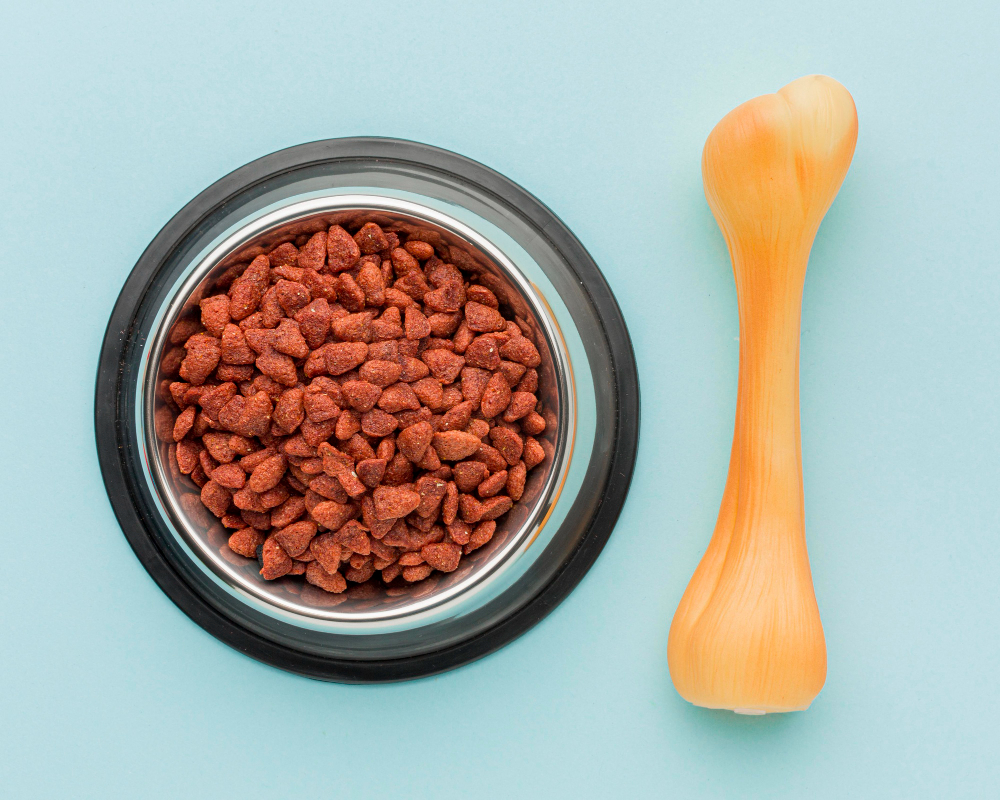As conscientious pet owners, we strive to provide our dogs with the best possible nutrition to support their health and well-being. The right diet can play a significant role in preventing and managing various health issues, and one type of pet food that has gained attention is low-fat dog food. But what exactly are the nutritional benefits of low-fat dog food, and why might it be a wise choice for your furry friend?
Weight Management
One of the primary benefits of low-fat dog food is its role in weight management. Obesity is a common problem among dogs and can lead to various health issues such as diabetes, joint problems, and heart disease. Low-fat dog food helps manage calorie intake while still providing essential nutrients, making it easier for your dog to maintain a healthy weight.
Improved Digestive Health
Dogs with sensitive stomachs or gastrointestinal issues often benefit from a low-fat diet. Fatty foods can be harder to digest and may lead to symptoms like diarrhea, vomiting, and pancreatitis. Low-fat dog food is formulated to be gentler on the digestive system, helping to prevent and manage these problems.
Enhanced Energy Levels
Just like humans, dogs can experience a slump in energy levels if their diet is too heavy on fats. Low-fat dog food ensures that your dog receives balanced nutrition without the excess fat that can cause lethargy. This is particularly important for older dogs or those with certain health conditions that can affect their energy levels.
Pancreatitis Prevention
A high-fat diet may cause pancreatitis, an inflammation of the pancreas. This illness has the potential to be fatal and extremely painful. Feeding your dog a low-fat diet can help prevent the onset of pancreatitis, especially if your pet is predisposed to this condition.
Heart Health
A diet high in fat can contribute to the development of heart disease in dogs. Low-fat dog food can help maintain your dog’s cardiovascular health by reducing the risk of conditions such as hypertension and heart disease. It ensures that your pet receives necessary nutrients without the excess fat that can strain the heart.
Nutrient-Rich Formulations
Low-fat dog food doesn’t mean low nutrition. Many brands ensure that their low-fat formulas are packed with essential vitamins, minerals, and other nutrients. This ensures your dog gets a well-rounded diet that supports overall health and well-being. Look for pet food that includes high-quality protein sources, fiber, and other beneficial ingredients.
Better Skin and Coat
Fatty foods can contribute to poor skin and coat conditions in dogs. A low-fat diet, rich in other essential nutrients, helps maintain healthy skin and a shiny coat. Omega-3 and Omega-6 fatty acids, often included in low-fat dog food formulations, are particularly beneficial for skin and coat health.
Suitable for Various Life Stages
Low-fat dog food is not just for overweight dogs or those with health issues. It can be beneficial for dogs at various life stages, including puppies, adult dogs, and senior dogs. Each stage of a dog’s life has different nutritional requirements, and low-fat dog food can provide the necessary adjustments in diet to ensure optimal health.
Managing Specific Health Conditions
Certain health conditions require a low-fat diet. Dogs with conditions like hyperlipidemia (high levels of fat in the blood) and certain liver diseases can greatly benefit from low-fat dog food. These specially formulated diets can help manage these conditions more effectively, improving your dog’s quality of life.
Making the Switch
Transitioning your dog to a low-fat diet should be done gradually to avoid digestive upset. Start by mixing a small amount of low-fat dog food with your dog’s current food and gradually increase the proportion of the new food over a week or two. Monitor your dog’s health and energy levels during this transition to ensure they are adjusting well to the new diet.
Conclusion
Exploring the nutritional benefits of low-fat dog food reveals why it might be a smart choice for many dogs. From weight management to improved digestive health and better energy levels, low-fat dog food offers a host of advantages that contribute to your pet’s overall health. As always, it’s important to consult with your veterinarian before making any significant changes to your dog’s diet to ensure it meets their specific needs.
By making informed choices about your dog’s nutrition, you can help them lead a healthier, happier life. Low-fat dog food may just be the key to unlocking better health and vitality for your furry friend. So next time you’re shopping for pet food, consider the benefits of a low-fat option and how it can support your dog’s well-being.


